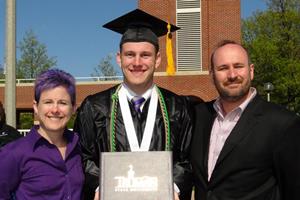I remember my first love. I was eight. His name was Michael.
He held my hand and opened doors for me. People thought we were cute together.
It never occurred to me that it was okay for some kids to have first loves, but not others. And that people only thought it was cute because I was a girl, and he was a boy.
When I read things like this: Student cites bullying, seeks school OK for gay-straight club my heart aches.
So, a student approaches school directors and asks to start a Gay Straight Alliance Network club at her high school in order to, amongst other things, ease the transition to high school for gay middle schoolers.
The directors knew she would be speaking at the meeting. Four of nine members were absent.
Last month, the board removed the term “sexual orientation” from their anti-harassment policy because they did not believe the law required “sexual-orientation” to be included.
According to the article, parents have expressed concerns that the “‘sexual orientation’ term in harassment and bullying policies in schools have been used by radical gay activists to keep their opponents silent,” and may be a “gateway to homosexually-based programs coming into the school district, and potential predators targeting innocent students confused about their sexuality.”
Wow!
It seems we are simply unable to get over this irrational belief that people of non-heterosexual orientation are more likely to be child sex predators than their heterosexual counterparts are.
We, as a society, claim that we are becoming more accepting of people with diverse sexual orientations. (i.e. we are making slow, tedious strides towards not being such judgmental pricks about whom another person loves.)
But apparently, this only applies when the people in question are adults.
Not when they’re children.
That a young person could fall in love with someone of their own gender is still a concept many cannot accept.
Kids, unfortunately, aren’t stupid.
We are sending them a very loud message, and they are hearing it:
- Non-heterosexual orientation is abnormal, and a concept to which innocent children should not be exposed, let they become victim to predators.
- If you are not heterosexual, there is something wrong with you.
Transitioning from childhood to adulthood is a challenging and confusing time for all young people.
How much more challenging must it be for young people with a non-heterosexual identity?
Why would we not want to support these young people during their transition from childhood to adulthood just as much as we do their heterosexual counterparts?
And, more importantly, why would any group of educational directors resist having a student organization on campus that would not only provide support for LGBT students but also encourage us all to be more accepting of each other?
What could possibly go wrong? I mean, other than, perhaps, young people starting to realize that it is normal for one person to fall in love with another person, and that people who fall in love with people are, well, just people.
Adolescence is a confusing time. But it should also be an exhilarating time, a time of crushes and first loves, and recognizing ourselves as sexual beings. And not a time to be too scared to fall in love!
Valentine ’s Day is coming up.
Imagine this:
You are in the park. It just happens to be a sunny, and not freezing cold, Valentine’s Day. (Use your imagination!)
A twelve-year-old boy sits on a bench with his arm around a twelve-year-old girl. He gives her a box of chocolates. She kisses him. They both blush.
Passersby probably think to themselves, “Ah, young love, how sweet!”
I doubt anyone would speculate that either the boy or the girl was sexually confused.
But what if, instead, the boy had his arm around another boy? When the second boy kissed the first boy, would the reaction of passersby be the same?
Sadly, I don’t think so.
I look forward to the day (I have to believe it will come) when a boy can fall in love with another boy (and a girl with another girl), hold hands in the park and share a first kiss and it will never occur to anyone to think anything other than, “Ah, young love, how sweet!”




